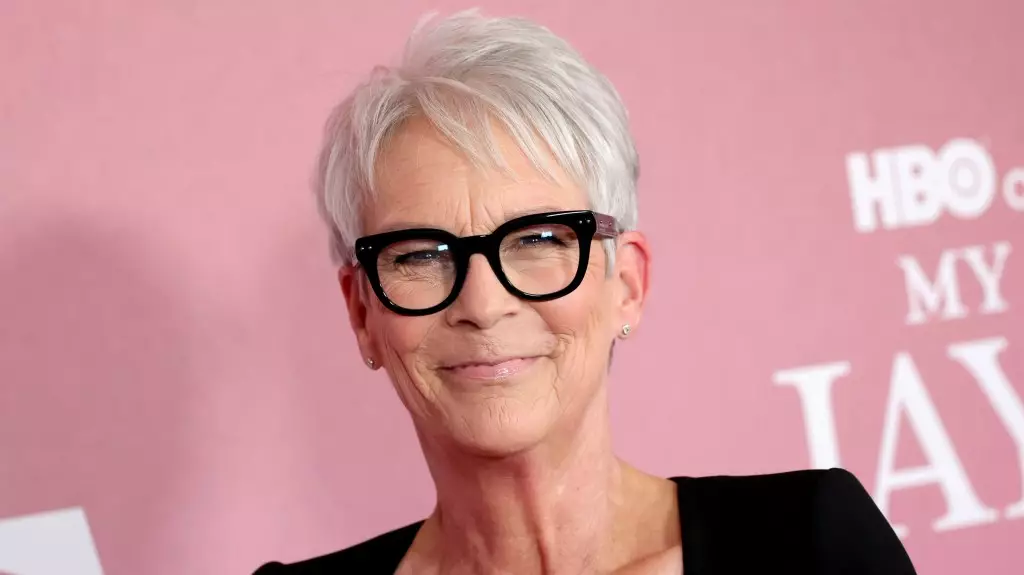In an industry notorious for its fleeting appreciation of talent as actors age, Jamie Lee Curtis emerges as a formidable critic, not just of Hollywood’s superficial obsession but of its deep-rooted bias against aging. Her candid reflections reveal a painful history rooted in her own family—the legendary Janet Leigh and Tony Curtis—whose careers declined painfully due to industry rejection tied to their age. Curtis’s honesty underscores a profound truth: the entertainment world often discards its aging stars, particularly women, once they become less “marketable” by society’s narrow standards. Her narrative exposes a systemic issue that transcends individual careers, illustrating how the industry promotes youthfulness as an unachievable, oppressive ideal.
Her decision to “self-retire” long before her industry relevance fades underscores a radical choice—one rooted in frustration, self-preservation, and a refusal to be discarded. Curtis’s stance isn’t merely a critique; it’s a rallying cry for more respect and recognition of aging talents. She advocates for valuing experience and wisdom, rather than succumbing to the superficial obsession with plastic gloss and filter-fueled beauty standards that dominate contemporary media. Her viewpoint is a stark reminder: Hollywood’s obsession with youth is a form of cultural erasure that impoverishes society and kills diversity of representation.
The Cultural War Against Natural Aging
Curtis’s vocal opposition to cosmetic surgery and societal pressures on women to maintain a youthful appearance makes her a outspoken advocate for authenticity. Her provocative act of wearing oversized plastic lips during her photoshoot serves as a visual protest against the dangerous seduction of artificial beauty. Her personal regret over her early plastic surgery experience illuminates her journey toward embracing aging naturally, and her critique of the “cosmeceutical industrial complex” underscores a broader societal issue. This industry, driven by profits, perpetuates a damaging myth: that natural aging is something to be fought, suppressed, or erased.
Her deliberate use of the word “genocide” to describe the impact of cosmetic procedures on her generation is not hyperbole; it’s a passionate call to recognize the profound cultural loss of genuine, natural human appearance. Curtis emphasizes that filters, surgeries, and chemical altering procedures strip away the uniqueness of natural aging, creating a societal landscape obsessed with glamorized falseness. Her stance challenges viewers to reconsider what “better” truly means—questioning whether manipulated images and artificial appearances deliver genuine happiness or superficial satisfaction.
She critiques the proliferation of filtered images and AI-generated beauty standards that distort societal norms, effectively erasing authenticity in favor of artificial perfection. Her argument is that this cultural shift sabotages self-esteem, especially among women, leading to a generation disfigured by self-doubt and body dysmorphia. Her outspoken voice seeks to dismantle these harmful stereotypes and promote acceptance of the aging process, urging society to value experience and natural beauty over synthetic facades.
Reclaiming Relevance and Challenging Industry Norms
Despite her critical stance, Curtis remains actively involved in Hollywood’s future, balancing her advocacy with a flourishing career. Her upcoming projects reflect her refusal to be written off: she stars in the reboot of “Freaky Friday,” is involved in ambitious productions like the “Murder, She Wrote” revival, and takes on roles that showcase her versatility as an artist. Her multifaceted career proves that age should be no barrier to relevance, creativity, or influence.
Curtis’s leadership extends beyond acting; she’s producing projects that challenge industry norms, such as “The Lost Bus,” based on impactful real-life events, and “Scarpetta,” a series rooted in bestselling novels, which already enjoys success on Prime Video. Her active involvement in these projects sends a powerful message: older actors can be central figures in storytelling, capable of drawing audiences and shaping cultural dialogue. Her commitment demonstrates that a thriving career is possible at any age when one refuses to surrender to stereotypes.
The industry’s obsession with youth can no longer be ignored or dismissed. Curtis’s outspoken stance is a critical reminder that progress involves challenging entrenched norms and advocating for genuine representation. Her activism confronts the superficial standards that have long dictated Hollywood’s casting and storytelling choices, advocating instead for a more inclusive, mature, and authentic cinematic landscape. Her voice echoes a call for societal change—one that respects and celebrates the aging process rather than fight against it.
In assessing Curtis’s career and personal convictions, one cannot overlook how her actions challenge not only Hollywood but also broader cultural narratives about beauty, aging, and worth. Her refusal to accept society’s limited views on aging embodies resilience and a revolutionary push for a more humane, honest, and inclusive future.

